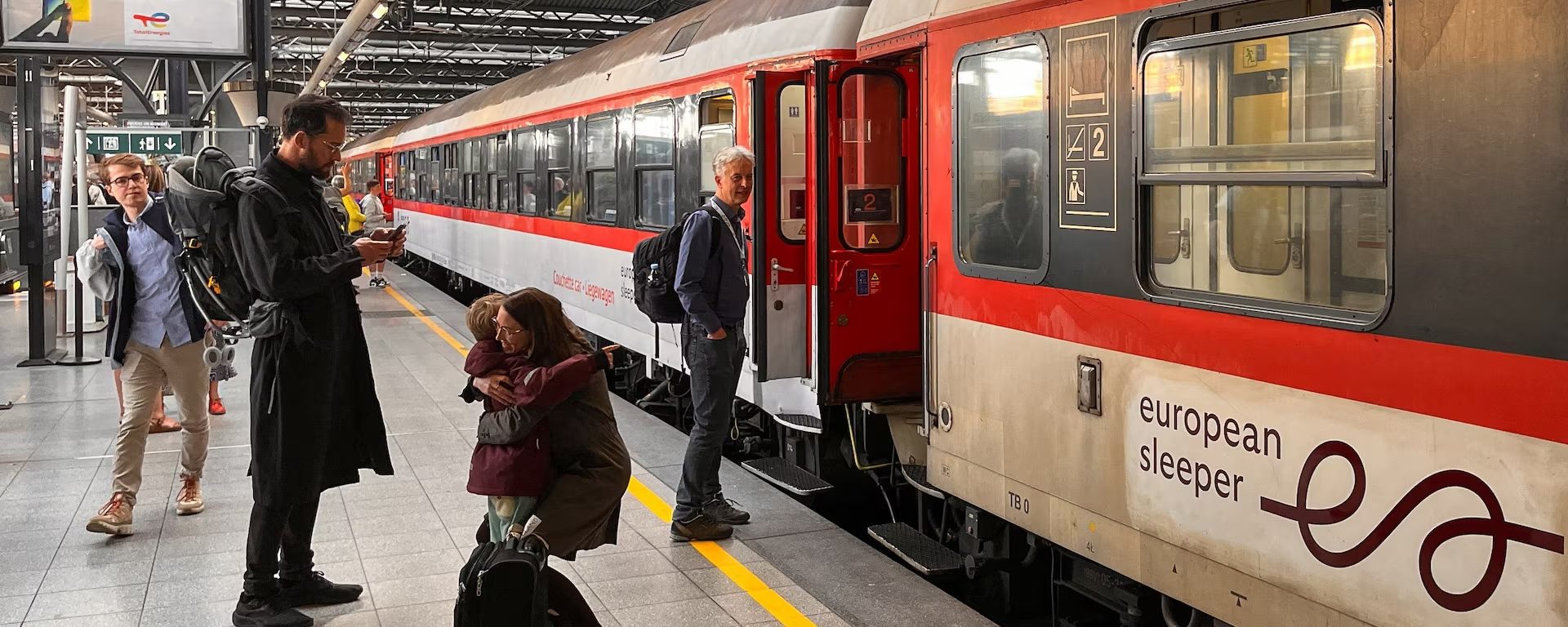European Sleeper announced its Paris–Berlin night service starting on March 26, 2026. The operator is now fine-tuning the timetable while gearing up for ticket sales from December 16, 2025.
The night train will run three times a week between Paris and Berlin. This is a modest frequency on paper but, in real terms, a significant comeback for this classic corridor.
Trains will leave Paris on Sundays, Tuesdays, and Thursdays. Departures from Berlin are set for Mondays, Wednesdays, and Fridays. This creates a steady weekly rhythm. Regular travelers can actually plan around it. The route will run via Brussels, tying three major hubs into a single overnight link instead of three separate trips.
For many passengers who used Nightjet in the past, this new service will fill part of the void. The gap was left by the discontinuation of those subsidized trains. The pattern and branding now look very different.
Across Europe, night trains have slowly returned to the political and commercial agenda. Operators and policymakers can see growing demand for lower-carbon alternatives on medium-distance routes.
As one planner put it, “we can see the cliff coming.” That blunt warning about aviation emissions has pushed companies to look again at long-distance services. These services work while people sleep.
Ticket sales for the Paris–Berlin service will open on December 16, 2025. The operator plans to publish full fare details at the same time. They prefer this over releasing partial information in stages.
That approach sounds simple. For passengers, it means clearer expectations on price. They will face fewer surprises when they compare trains with low-cost flights or buses.
The company also invites individual investors to buy shares starting at €280. They use a cooperative funding model. This approach does not rely solely on traditional large-scale finance.
European Sleeper launched its first international route in 2023. It initially linked Brussels and Berlin. The service was later extended to Dresden and Prague as demand proved resilient.
The operator plans to increase frequencies on that existing route to six trips a week. Nonetheless, final timetables and fleet planning are still in the “work in progress” category.
The Paris–Berlin night train is a strategic addition to this growing network. It targets travelers who prefer to turn long-distance journeys into an overnight stay. These travelers favor this over a rushed day trip or early-morning flight.

